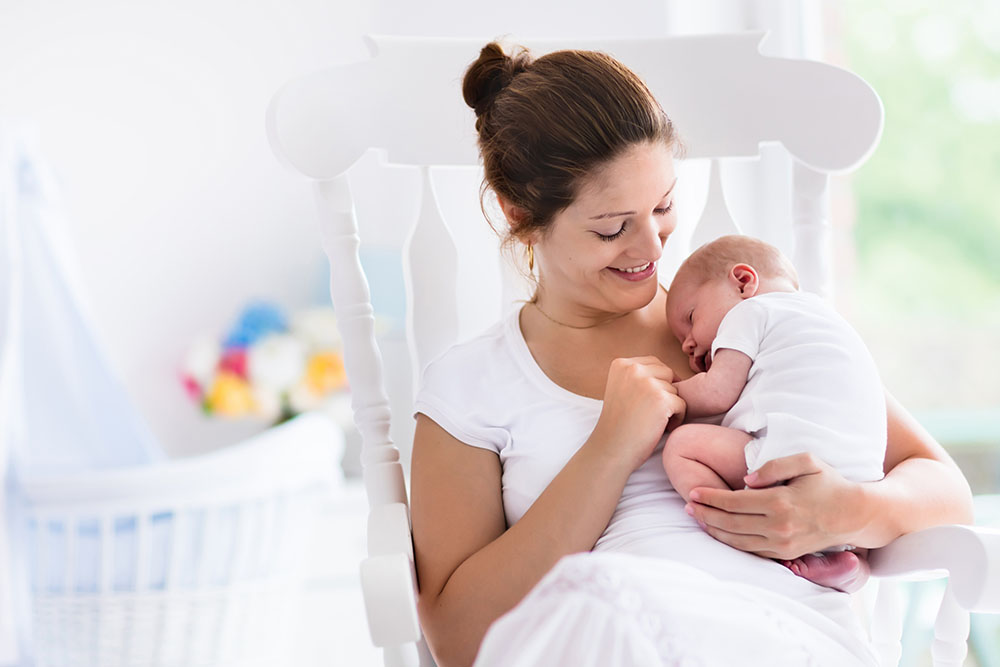Is there a chance postpartum anxiety is interfering with your life? While postpartum depression receives plenty of attention, that isn’t equally the case with postpartum anxiety. Because of this, many women fail to get the help they need, sometimes wrongly assuming they’re OK because they don’t exhibit the classic blues.
Yes, one common result of the pregnancy and birth process can be ongoing sadness and even despair. But to compartmentalize that experience and assume mental health challenges happen no other way is dangerous. In reality, how a woman’s body and mind react to the birth process is as varied as those who experience it.
In her Psychology Today article entitled Why We Should Be Paying More Attention to Postpartum Anxiety, Melissa Weinberg LCPC shares the following about how perinatal anxiety concerns too often get overlooked.
“These women who find themselves intensely anxious—but not so much depressed—are slipping through the cracks. They are left feeling isolated and like something is wrong with them. They struggle and don’t always know why.”
For a myriad of reasons, some new moms experience few mental health challenges when compared with others. Still, all of them go through mental struggles to some extent since there’s no such thing as perfect mental health (especially during such an incredibly joyful yet stressful life transition).
If you find yourself struggling during pregnancy or post-birth, please know you may exhibit mental health difficulties quite differently from how you heard or read you could experience them. There are several reasons for this that we’ll discuss before getting into potential postpartum anxiety symptoms to consider.
Postpartum Anxiety Can Be a Symptom of Postpartum Depression
Postpartum anxiety can exist independently of postpartum depression. However, sometimes this type of anxiety is a symptom of postpartum depression. It can be challenging to know for sure what is going on without seeing a licensed professional.
Your anxiety could signal a depressive disorder, anxiety disorder, both, or none of the above. That’s why it’s so important to pay close attention to how you’re feeling and reach out if life begins to get tough. This is all the truer if you already had a mental health diagnosis before pregnancy or birth.
What is Postpartum Anxiety and its Symptoms
There are a variety of signs of postpartum anxiety women may experience. What follows are some common categories of anxiety symptoms. This isn’t meant to be a diagnostic tool. Also, if you’re experiencing postpartum anxiety, you’ll likely identify signs from several categories (there usually is some overlap).
Generalized Anxiety
- Difficulty sleeping
- Hypervigilance
- Worst-case scenario thoughts often catastrophic in nature
- The inability to control or cease worrying
- Constant worry that involves many “what if’s”
OCD
- Ongoing, undesired, and intrusive thoughts commonly regarding the baby that are sometimes morally and culturally unacceptable (sexual or violent themes, for example)
- A realization that these thoughts aren’t consistent with one’s beliefs or values and that they are extreme
- Suffering and anxiety that arise from being troubled by having such deviant and unwanted thoughts
- Obsessive thoughts that lead to compulsive actions (including constant checking on the baby, researching or reassurance seeking)
- Failing to find comfort from obsessive/compulsive tendencies which do the complete opposite of what was intended (increasing anxiety levels instead of calming them)
- Ever-increasing anxiety since safety and wellbeing cannot be 100 percent guaranteed (OCD sufferers struggle immensely with the idea of uncertainty)
- As anxiety increases, attempts to control potentially unfavorable outcomes become all the more desperate, causing growing urges to control anxiety in unhealthy ways, leading to even more anxiety.
PTSD
- Hypervigilance
- A birth experience that is traumatic (Could include an emergency c-section, the baby or mother’s health in danger, feelings of powerlessness or not receiving enough support, among many other possibilities)
- A reliving of that trauma or experiencing flashbacks
- Avoidance of things that are a reminder of the trauma
- Feeling detached from people and life in general
- Depressed mood
Postpartum Panic Attacks
- Worry that you could be dying or the feeling of extreme dread
- Physical fight-or-flight reactions including limb numbness, sweating, dizziness, shortness of breath, shaking or an increased heart rate
- Fear that the physical symptoms of panic will occur again
Postpartum Anxiety is Treatable
Do you have concerns that postpartum anxiety is making tasks and overall life more burdensome to handle? If so, your feelings of overwhelm can make it seem like there’s no hope. The good news is there are ways you can explore to better manage and treat your postpartum anxiety. Here are several things you can do.
Acknowledge Your Anxiety: It’s OK and healthy to admit that your anxiety feels more heightened than it should. You aren’t weak or an incapable parent if you feel this way. Despite the birth of a child being wonderful, it can also leave new moms vulnerable to intense stressors. Physical and mental changes, sleep disruptions, and potentially badly lacking support systems outside one’s immediate family can only further complicate matters. For that reason, please never feel bad about reaching out for additional support. Some measure of anxiety with a newborn is bound to happen.
Connect with New Moms: Whether you connect with several new moms near you or find a support group is up to you. Either option can help you avoid feeling so isolated during the days and months following childbirth. These connections are especially valuable given how few family supports many have and because post-birth anxiety is all the more challenging given COVID.
Reach Out to Friends and Family: When new moms struggle with anxiety or depression they commonly worry they are unfit mothers. In reality, they are perfectly capable moms but just need added support during these transition times. For that reason, reaching out to family and friends you trust to discuss these challenges can be invaluable.
Counseling: Seeing a postpartum anxiety therapist can help you in several ways. First, you’ll get professional insight into your mental health status. You’ll also find confidential opportunities to discuss your struggles while discovering evidence-based ways to relieve your anxiety.
Could Counseling Be the Answer to Your Postpartum Anxiety?
At the OC Relationship Center, we well understand how anxiety and stress can interfere with your life. That’s especially true after the birth of a new child. You don’t have to go through your postpartum anxiety treatment journey alone. Some amount of anxiety after pregnancy and anxiety after birth will happen. A postpartum anxiety therapist can assist you. Feel free to reach out or schedule an appointment with us!



